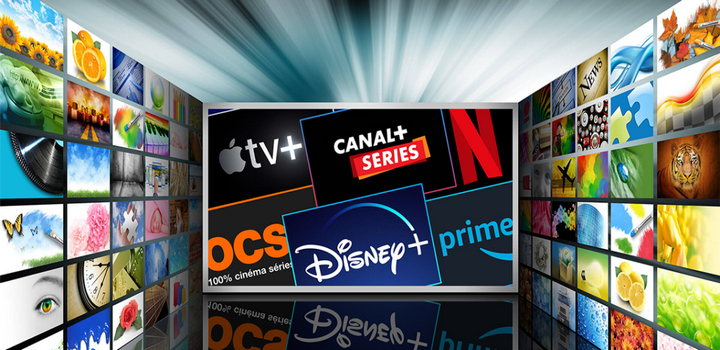In the age of digital transformation, the way we iptv quebec consume media has undergone a significant shift. One of the most notable developments in recent years is the rise of Internet Protocol Television (IPTV). Unlike traditional cable or satellite television, IPTV delivers content via the internet, enabling viewers to watch their favorite shows, movies, and live events on a wide range of devices. This article explores the concept of IPTV, its advantages, challenges, and its future in the ever-evolving media landscape.
What is IPTV?
IPTV stands for Internet Protocol Television, a system that allows users to stream television content through the internet rather than through conventional means such as cable or satellite signals. IPTV works by transmitting video content in packets over the internet protocol, allowing viewers to access a vast array of programming options on-demand.
There are three main types of IPTV services:
- Live IPTV: This service allows viewers to watch live television broadcasts in real time. It typically includes a wide variety of channels, from news to sports and entertainment.
- Video on Demand (VOD): VOD services let users choose and watch specific content at their convenience. This can include movies, TV shows, and documentaries.
- Time-Shifted IPTV: This feature allows viewers to watch previously aired content at their convenience, often with options to pause, rewind, or fast-forward.
Advantages of IPTV
- Wide Selection of Content: IPTV offers an extensive range of channels and content libraries, giving viewers access to global programming that may not be available through traditional cable packages.
- Flexibility and Convenience: With IPTV, users can watch their favorite shows and movies on various devices, including smart TVs, tablets, smartphones, and computers. This flexibility allows for a more personalized viewing experience.
- Interactive Features: Many IPTV services include interactive features such as catch-up TV, where viewers can watch past episodes, and the ability to pause and rewind live TV. This interactivity enhances the overall viewing experience.
- Cost-Effectiveness: IPTV services are often more affordable than traditional cable subscriptions. Many providers offer competitive pricing with customizable packages that allow users to pay only for the channels and services they want.
- High Definition and 4K Content: IPTV can provide high-definition (HD) and even 4K content, delivering a superior viewing experience compared to standard-definition cable broadcasts.
Challenges Facing IPTV
Despite its many advantages, IPTV also faces several challenges:
- Internet Dependence: Since IPTV relies on a stable internet connection, users in areas with poor connectivity may experience buffering, interruptions, or reduced quality.
- Legal and Regulatory Issues: The legality of certain IPTV services can be ambiguous. Some providers may offer access to copyrighted content without proper licensing, raising concerns about piracy and compliance with local laws.
- Security and Privacy Risks: As with any internet-based service, IPTV can be vulnerable to security threats and hacking attempts. Users must ensure they are using reputable providers that prioritize data protection and privacy.
- Quality of Service: The quality of IPTV can vary significantly between providers. Factors such as streaming speed, latency, and bandwidth can impact the overall user experience.
The Future of IPTV
The future of IPTV looks promising as technology continues to advance and consumer preferences shift. Here are some trends that may shape the IPTV landscape:
- 5G Technology: The rollout of 5G networks is expected to enhance the streaming experience by providing faster speeds and lower latency. This advancement will make IPTV more accessible and reliable, especially for mobile users.
- Personalization and AI: IPTV providers are increasingly leveraging artificial intelligence to deliver personalized content recommendations based on user preferences and viewing habits. This trend will help enhance user engagement and satisfaction.
- Integration with Smart Home Devices: As smart home technology becomes more prevalent, IPTV services may integrate seamlessly with devices such as smart speakers and home assistants, providing users with a more interconnected experience.
- Growth of Live Streaming: The rise of live streaming events, from sports to concerts, will likely continue to drive interest in IPTV as viewers seek alternative ways to access live content.
Conclusion
IPTV represents a significant shift in how we consume television, offering flexibility, variety, and cost-effectiveness that traditional cable services often lack. While challenges remain, the technology’s potential for growth and innovation is undeniable. As the media landscape continues to evolve, IPTV is poised to play a pivotal role in shaping the future of entertainment, providing viewers with an unprecedented range of options and a more personalized viewing experience. Whether you’re a casual viewer or a die-hard binge-watcher, IPTV may soon become the go-to method for accessing your favorite content.

